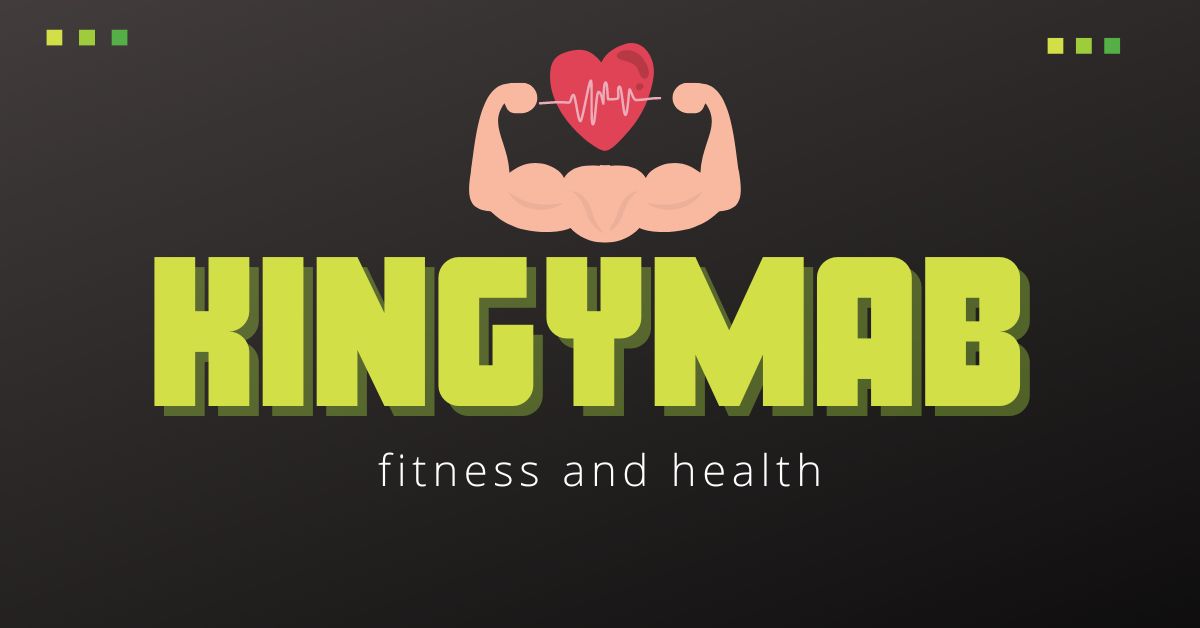Contents
- 1 Introduction to Building Muscle
- 2 Understanding the Science of Muscle Growth
- 3 Nutrition for Building Muscle
- 4 Importance of Rest and Recovery
- 5 Effective Workout Strategies for Building Muscle
- 6 Supplements for Supporting Muscle Growth
- 7 Mistakes most people make when trying to gain muscle
- 8 Tips for Staying Motivated and Consistent
- 9 Conclusion: Achieving Your Goals with a Solid Plan
Introduction to Building Muscle
Welcome to WellHealth! Are you ready to transform your physique and build lean, strong muscle? Whether you’re a fitness enthusiast or just starting your wellness journey, this guide will provide you with all the tools and knowledge you need to achieve your goals.
Building muscle is not only about looking great; it’s about feeling confident, improving strength, and enhancing overall health. So, let’s dive in and uncover the secrets of how to build muscle effectively! Get ready for an exciting ride that will leave you feeling more vital!
Understanding the Science of Muscle Growth
Muscle growth, or hypertrophy, is a complex process involving various physiological mechanisms. You create micro-tears in your muscle fibers during resistance training, such as weightlifting or bodyweight exercises. These tears then trigger a response from your body to repair and rebuild the damaged tissue.
During recovery, satellite cells are activated and fuse with the existing muscle fibers to promote growth. Additionally, an increase in protein synthesis occurs within these muscle fibers. This means new proteins are produced to help build and strengthen muscles.
To support this muscle-building process, providing your body with adequate nutrition is crucial. Consuming enough protein is essential for repairing and building new muscle tissue. Daily protein intake should be between 0.8 and 1 gram per pound of body weight.
In addition to protein intake, carbohydrates are vital in providing energy for intense workouts and replenishing glycogen stores post-workout. Healthy fats are also crucial for hormone production and overall health.
Furthermore, rest and recovery are critical components of muscle growth. Giving your muscles time to heal allows them to adapt and grow stronger. Aim for at least 48 hours of rest between working out each muscle group.
Nutrition for Building Muscle
Nutrition plays a crucial role in building muscle. Fueling your body with the proper nutrients maximizes your muscle gains. Here are some critical nutrition aspects to consider when building muscle.
Protein is the first and fundamental requirement for muscular development. It provides the building blocks for new muscle tissue and helps repair damaged muscles after intense workouts. Aim to include high-quality protein sources in your diet, such as lean meats, poultry, fish, eggs, dairy products, and plant-based proteins like beans and lentils.
In addition to protein, carbohydrates are important for providing energy during workouts and replenishing glycogen stores afterward. Opt for complex carbohydrates like whole grains, fruits, vegetables, and legumes, which provide sustained energy without causing spikes in blood sugar levels.
Remember about healthy fats! They play a vital role in hormone production, which is necessary for muscle growth. Include foods rich in omega-3 fatty acids like salmon, avocados, nuts, and seeds.
Hydration is also crucial for optimal performance and recovery. Aim to drink plenty of water throughout the day to stay hydrated and support the proper function of your muscles.
Last but not least (last but not least), don’t neglect micronutrients! Vitamins and minerals help support overall health, including muscle function. Make sure you’re getting a variety of colorful fruits and vegetables and fortified foods or supplements if needed.
Importance of Rest and Recovery
Rest and recovery are often overlooked aspects of building muscle, but they are just as important as the actual workouts. When you exercise, you break down your muscle fibers, causing microscopic tears in the tissue. During rest, these tears heal and repair, resulting in stronger and larger muscles.
Without adequate rest and recovery time, your muscles won’t have a chance to repair themselves properly. This can lead to overtraining, hindering your progress rather than helping it. Overtraining can cause fatigue, decreased strength and performance, increased risk of injury, and even mental burnout.
In addition to allowing for muscle repair, rest is also crucial for hormone regulation. During sleep, our bodies especially release growth hormones that help with muscle recovery and growth. Lack of sleep can disrupt this hormonal balance and impede muscle development.
Aiming for 7-9 hours of quality sleep per night is recommended to optimize your body’s ability to recover from workouts. Consult a healthcare professional if you’re having trouble getting enough restful sleep or feel constantly tired despite adequate rest periods.
Taking regular days off from training is another essential component of proper rest and recovery. These “off” days allow your muscles time to rebuild without added stress or strain. It doesn’t mean you must be entirely passive; light activities like stretching or low-intensity cardio can promote blood flow without excessive demands on recovering muscles.
Incorporating active forms of recovery into your routine can also aid healing. This includes foam rolling or using a massage gun on sore areas to increase blood flow and alleviate muscle tension.
Remember that consistency is key when building muscle, and so is giving yourself ample time for rest and recovery. By prioritizing these aspects, proper nutrition, and effective workout strategies discussed in this guide (link back to previous sections), you’ll be well on your way to achieving muscle-building.
Effective Workout Strategies for Building Muscle
- When it comes to building muscle, exercise is critical. But not just any workout will do. It would help to incorporate specific strategies into your muscle-building routine.
- First and foremost, focus on compound exercises. These movements target multiple muscle groups simultaneously, such as squats, deadlifts, and bench presses. Compound exercises engage more muscles and stimulate more significant muscle growth than isolation exercises.
- Next, prioritize progressive overload. This means gradually increasing the stress on your muscles over time by lifting heavier weights or performing more repetitions. Progressive overload forces your muscles to adapt and grow stronger.
- In addition to weightlifting, don’t neglect cardiovascular exercise. While it may seem counterintuitive to build muscle mass, cardio helps improve overall fitness and endurance while promoting better recovery between intense weightlifting sessions.
- Furthermore, ensure proper form during every exercise to maximize results while minimizing the risk of injury. Poor conditions can lead to ineffective workouts or setbacks due to wounds that hinder progress.
- Vary your training routine by incorporating different workouts, such as high-intensity interval training (HIIT) or circuit training, alongside traditional strength training sessions. This variety keeps your body challenged and prevents plateaus in muscle development.
- By implementing these effective workout strategies consistently and progressively challenging yourself over time with proper technique—you’ll be well on your way toward achieving your desired gains in muscle mass!
Supplements for Supporting Muscle Growth
When building muscle, many people turn to supplements to enhance their results. While it’s important to note that supplements should never replace a healthy diet and exercise routine, they can be a helpful addition to support your muscle growth goals.
One popular supplement for building muscle is protein powder. Protein is essential for repairing and building muscles; consuming enough is crucial in any muscle-building journey. Protein powders come in various forms, such as whey, casein, or plant-based options like pea or soy protein.
Another supplement that has gained popularity among athletes and fitness enthusiasts is creatine. Creatine helps increase strength and power during workouts by replenishing ATP stores in the muscles. This allows you to push harder during training sessions and see better gains over time.
Fish oil supplements are also commonly recommended for supporting muscle growth. They contain omega-3 fatty acids, which help reduce inflammation, aiding in recovery after intense workouts. Additionally, fish oil may improve insulin sensitivity, positively affecting muscle protein synthesis.
While these supplements can support your muscle growth journey, it’s important to remember that everyone’s needs differ. It’s always recommended to consult with a healthcare professional or registered dietitian before adding new supplements to your routine.
Incorporating the right supplements, proper nutrition, and regular resistance training can help optimize your efforts toward building lean mass and achieving your desired physique! Remember, though – consistency is key to reaching your fitness goals! Stay committed and dedicated throughout your journey!
Mistakes most people make when trying to gain muscle
Many people aim to increase their muscle mass. However, common mistakes can hinder progress and prevent achieving your desired results.
One mistake to avoid is neglecting proper form during exercises. It’s crucial to perform each exercise with the correct technique to target the intended muscles effectively and reduce the risk of injury. Take the time to learn proper form and seek guidance from a qualified trainer.
Another mistake is relying too heavily on isolation exercises. While these exercises have their place, compound movements such as squats, deadlifts, and bench presses should be prioritized as they engage multiple muscle groups simultaneously, leading to more significant overall strength gains.
Neglecting nutrition is another trap many fall into when building muscle. To fuel muscle growth, your body needs a surplus of calories and macronutrients like protein, carbohydrates, and healthy fats. Make sure you’re consuming enough quality food sources throughout the day.
Overtraining can also hinder progress by not giving your muscles adequate time to recover and repair themselves. Rest days are as important as workout days to allow your muscles time to strengthen.
Additionally, failing to track your progress can make it difficult to gauge whether you’re making gains over time. Keeping a training journal or using an app can help you monitor your workouts, weights lifted, and repetitions performed so that you can make adjustments as needed.
Refrain from relying too heavily on supplements instead of focusing on proper nutrition and training techniques first. Supplements should be used as additions rather than replacements for a well-rounded approach.
By avoiding these common mistakes and staying consistent with your training program while paying attention both inside (nutrition) and outside (proper form), you’ll be well on your way towards building lean muscle mass effectively! So keep pushing yourself, but remember: patience is key.
Tips for Staying Motivated and Consistent
Staying motivated and consistent is critical to achieving your muscle-building goals. Here are some tips to help you stay on track:
1. Set realistic goals: It’s important to set achievable targets that align with your abilities and lifestyle. A common source of frustration and lack of enthusiasm is aiming too high.
2. Find a workout buddy: Having a workout partner can provide accountability and support. You can push each other, share progress, and celebrate victories together.
3. Mix up your routine: Doing the same workouts day after day can become monotonous, leading to boredom and decreased motivation. Try new exercises, vary the intensity or duration of your workouts, or join group classes to keep things interesting.
4. Track your progress: Keeping track of your progress can be highly motivating. Take measurements, record weights lifted or reps performed, and monitor changes in body composition over time.
5. Reward yourself: Celebrate milestones by rewarding yourself with non-food related treats like new workout gear or a massage.
6. Stay positive: Focus on the positive aspects of your journey rather than dwelling on setbacks or plateaus. Put yourself in the company of positive, encouraging individuals.
7. Don’t beat yourself up over slip-ups: We all have off days where we may skip a workout or indulge in an unhealthy meal – it happens! The key is not letting these minor setbacks derail you entirely; get back on track as soon as possible instead of dwelling on what went wrong.
Incorporating these tips into your daily routine will make you more likely to stay motivated and consistently build muscle effectively.
Conclusion: Achieving Your Goals with a Solid Plan
Now that you have a solid understanding of the principles behind building muscle, it’s time to put that knowledge into action and create a plan to help you achieve your goals. Building muscle takes time and consistency, so be prepared for a journey rather than an overnight transformation.
To begin, it’s important to establish a foundation of well-defined objectives. Whether increasing your overall strength, improving muscle definition, or gaining a certain amount of mass, having clear objectives will keep you motivated and focused on your progress.
Next, design an effective workout program with resistance training exercises and cardiovascular activities. Incorporate compound movements like squats, deadlifts, bench presses, pull-ups, and lunges to engage multiple muscles simultaneously. Varying the intensity and volume of your workouts can also help stimulate muscle growth.
Remember proper nutrition! Fueling your body with the right nutrients is crucial for supporting muscle growth. Ensure you consume enough protein from lean meats, poultry, fish, eggs, dairy products, or plant-based options like tofu or legumes. Carbohydrates provide energy during workouts, while healthy fats support hormone production essential for muscle development.
There is equal value in taking days off from training. Allow your muscles time to recover and repair by incorporating rest periods into your routine. Aim for 7-9 hours of sleep each night to promote optimal recovery.
While supplements can complement a well-rounded diet in supporting muscle growth (always consult with healthcare professionals before taking any), they should not replace whole foods or hard work in the gym. Popular choices include whey protein powder for post-workout recovery or creatine monohydrate to enhance strength gains.
Latest Articles!



